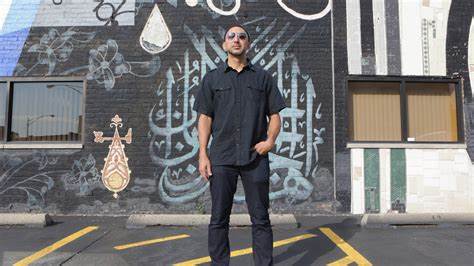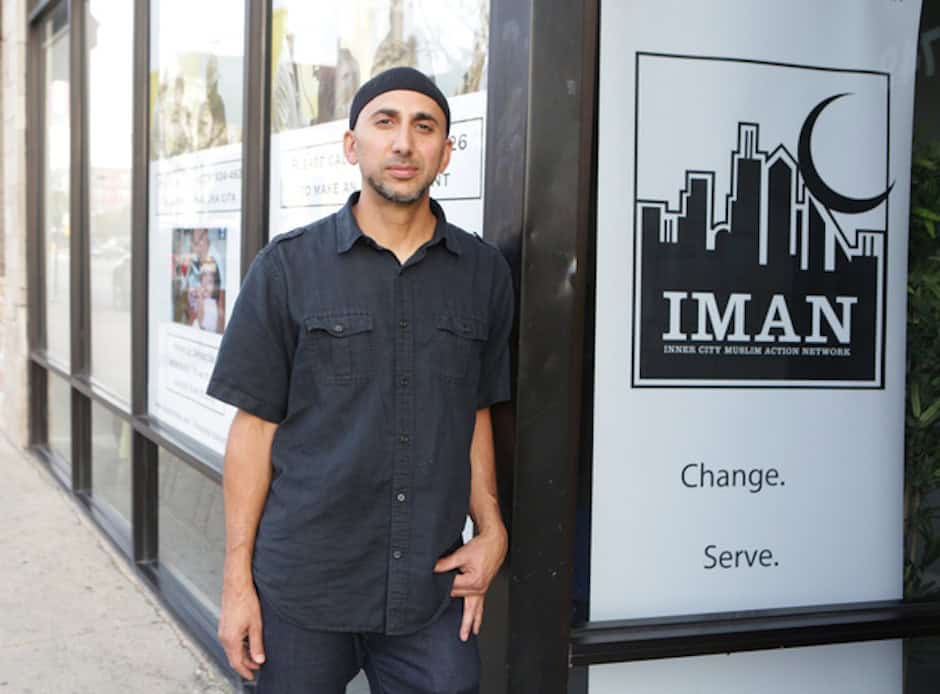The Israel-Palestine Conflict: Bridging Divides and Advocating for Peace Part 1
Hey family. Recently Pastor Phil and Pastah J had the profound opportunity to discuss one of the most enduring and complex conflicts of our time—the Israel-Palestine conflict. Their conversation with Rami Nashashibi, a Palestinian American and the founder of the Inner-City Muslim Action Network in Chicago, was not only enlightening but deeply moving.
The Colonialist Origins and the Impact of Occupation
The conversation began with a historical overview, where Rami provides us with a detailed account of the colonialist origins of Zionism and how the military occupation has affected the daily lives of Palestinians. He spoke of the day-to-day oppression that breeds resentment and the religious and ideological motivations that fuel the Israeli occupation. The current administration’s extreme representation of right-wing militant ideas was also a topic of concern.
Personal Stories: The Human Side of the Conflict
Rami’s personal experiences brought a poignant touch to the conversation. He recounted a harrowing incident in Birzeit, a village outside of Ramallah, where he faced the terror of an Israeli raid. The fear and tension that gripped him as soldiers approached his door was a stark reminder of the trauma that Palestinians endure regularly. The destruction of homes, the burning of olive trees, and the impact on children, especially in Gaza, were heart-wrenching to hear about.
The Dehumanization and Toll of the Conflict
The dehumanization of Palestinians and the tragic toll of the conflict, including the devastation of infrastructure and hospitals in the Gaza Strip, were also discussed. Rami expressed his frustration with the lack of accountability and the role of American support in the ongoing violence.
The Need for a Humanitarian Approach
Our hosts and guest acknowledged the suffering on both sides and the need for a humanitarian approach to address the deep-rooted issues. The impact of the conflict on communities in the United States was also a significant point of discussion, emphasizing the importance of understanding the history and experiences of both Israelis and Palestinians.

Building Bridges Through Dialogue
Rami shared his journey of engaging with the Jewish community in Chicago, highlighting the diversity within the Jewish American tradition. He stressed the need for critical dialogue and the recognition of humanity and suffering on all sides of the conflict.
The Path to Peace and Reconciliation
The challenges of finding a path to peace and reconciliation were acknowledged, with an understanding that addressing the root causes of the conflict is complex. Our hosts and guest reflected on the impact of the conflict on communities in the United States and the need for empathy and understanding in addressing the ongoing humanitarian crisis.

Israel-Palestine Conflict & The Call for Peacemaking
Rami challenged the notion of picking sides, emphasizing the importance of caring about the lives of all innocent people, including hostages. He referenced Matthew 5:9, “Blessed are the peacemakers, for they will be called the children of God,” urging listeners to understand the call for peacemaking and the blessings for those who work towards peace. The boldness required to advocate for peace in such tensions was not lost on us.
Pastor Phil and Pastah J agreed with Rami’s perspective and teased the next episode, where they plan to continue discussing the impact of the Israel-Palestine conflict and how believers can act as advocates and bridges in the midst of the tensions.
podcast
In Conclusion: A Nuanced and Empathetic Exploration
This conversation with Rami Nashashibi is a nuanced and empathetic exploration of the Israel-Palestine conflict. It highlighted the need for dialogue, understanding, and a humanitarian approach to address the deep-rooted issues and work towards peace and reconciliation. As leaders, we are called to stand in the middle, to promote peace, and to advocate for the lives of all innocent people affected by the conflict.
The situation in the streets remains chaotic and intense, but our resolve to seek peace and understanding only grows stronger. Stay tuned for part 2 as we continue this important conversation and work towards a future where peace is not just a distant dream, but a present reality.
Holy Culture Radio is operated by The Corelink Solution, a non-profit organization that aims to create a safe space for healing, foster unity in our communities and empower the next generation of creatives and leaders through spreading the gospel.
If you’d like to support our work, please make a donation. No amount is too small. You can also shop our online store to help spread awareness of our mission. Again, thank you and remember to be encouraged and be blessed.
TIMECODE REFERENCES:
The history of Palestine and Israel (00:00:12) Discussion about the historical background of the Israel-Palestine conflict, including the impact on the Palestinian perspective.
Personal experiences as a Palestinian American (00:02:56) Rami Nashashibi shares his personal experiences as a Palestinian American and his family’s history in Chicago.
The colonial legacy and early Zionist movement (00:11:26) Explanation of the colonial legacy and the emergence of the Zionist movement as a colonial project.
The reality of occupation and daily life (00:20:16) Insights into the daily life under military occupation, including the impact on Palestinian families and individuals.
Extreme religious Zionism and its impact (00:23:26) Discussion on the influence of extreme religious Zionism and its impact on the Israel-Palestine conflict.
The impact of militarism and youth involvement (00:25:27) Observations on the militarism and the involvement of young people in the conflict.
The Israeli Military Raid (00:25:43) A personal encounter with the Israeli military raiding a village in the middle of the night.
Settler Violence and Siege in Gaza (00:27:35) Discussion on the settler violence, siege, and invasions in Gaza, leading up to the deadly events on October 7th.
Challenges to Justify Annihilation (00:29:53) Challenging the use of right-wing Israeli intelligence to justify the annihilation of innocent people and infrastructure in Gaza.
Confronting the Dehumanization of Palestinians (00:30:24) Highlighting the dehumanization of Palestinians and questioning the response if a similar situation occurred in Chicago.
Netanyahu’s Assertive Actions (00:32:18) Discussion on Netanyahu’s assertive behavior and the financial implications of the US-Israel relationship.
Rabbi Marx’s Civil Rights Work (00:33:12) The conversation shifts to Rabbi Marx’s civil rights work and the importance of justice in all religious communities.
Changing Views on Jewish Experience (00:34:07) Reflecting on the evolving understanding of the Jewish experience and the complexity of the Israeli military occupation.
Impact of Conflict on American Soil (00:40:04) Pastor Phil discusses the potential impact of the conflict on American soil and the need for a humanitarian approach to the situation.
Humanitarian Impact of Conflict (00:45:37) Emphasizing the humanitarian impact of the conflict, particularly on the young population in the Gaza Strip.
Seeking Healing and Resolution (00:49:44) Pastor Phil discusses the need for healing and resolution, emphasizing the importance of understanding the history and taking ownership of past actions.
The call for peacemakers (00:50:48) Encouragement to consider a middle ground and the call for peacemakers, referencing Matthew 5:9.
Challenges to peacemaking (00:51:23) Discussion on the challenges of being a peacemaker and the importance of standing in the middle.
Continuing the conversation (00:52:08) Teaser for the next episode, focusing on the ongoing tension between Israel and Palestine and the role of believers.
Related Radio Show: CHURCH ON THE BLOCK

